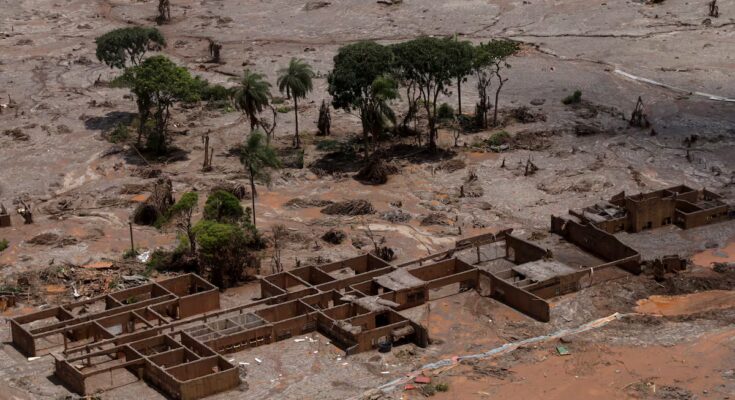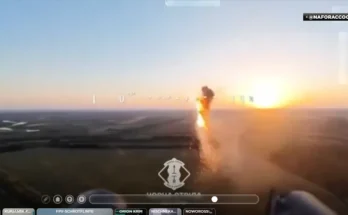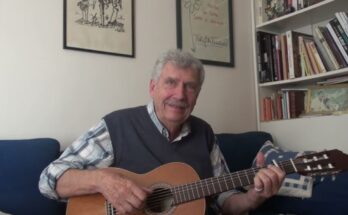The United Kingdom justice system issued this Friday the verdict on the largest environmental catastrophe in Brazil’s recent history, condemning the Anglo-Australian mining giant BHP for the collapse of the Fundão dam, in the municipality of Mariana, Minas Gerais, which occurred in 2015. The decision puts an end to the bitter wait of more than 620,000 plaintiffs and sets an unprecedented precedent for Brazilian victims to be able to seek compensation in foreign courts. The collapse resulted in the dumping of more than 40 million cubic meters of mining waste, destroyed entire communities, caused 19 deaths and more than 600 evictions, and contaminated the Doce River basin all the way to the Atlantic Ocean.
The High Court in London finds that BHP exercised direct and indirect control over Samarco, the subsidiary responsible for managing the dam, and ignored technical warnings showing structural risks years before its collapse. The company has announced its intention to appeal the ruling.
With this sentence the first phase of the trial ends and a process opens to define compensation for the people affected by the so-called Mariana catastrophe, who lived along the Río Doce. The British law firm Pogust Goodhead, which represents those affected by the catastrophe, estimates that compensation could reach 36 billion pounds (about 47 billion euros).
“We had to fight against some of the largest mining companies in the world to defend our rights. It was very difficult, it was a decade of struggle, but those of us who were affected did not give up,” explains indigenous leader Marcelo Krenak, who represents the affected communities in the Vale do Rio Doce region, in an interview. “They (mining entrepreneurs) took away all our wealth and what was left was their waste. This victory shows that when someone is willing to fight, there can be justice,” he says.
Over the last ten years, several reparation agreements have been signed in Brazil between the mining companies BHP and the Brazilian Vale (also co-owner of Samarco) and federal public bodies. However, thousands of victims of the tragedy chose to join the British trial, dissatisfied with the way the Brazilian state held companies accountable. In November last year, Vale and BHP were criminally acquitted by a Brazilian court for lack of evidence regarding their responsibility for the dam collapse, a decision that caused widespread unrest among organizations defending victims of the tragedy.
The class action filed in London paved the way for justice and became the largest environmental lawsuit in the world.
In 2019, the collapse of another mining dam owned by the multinational Vale in the same region of Brazil, in Brumadinho, in the state of Minas Gerais, killed 270 people, buried under the mud of the waste.
For representatives of the victims of the Mariana tragedy, the outcome of the litigation changes the course of the environmental fight in the South American country. Thatiele Monic Estevão, activist and representative of the quilombola communities of Mariana, commented, after hearing the phrase while attending COP30 in Belém, the great mix of emotions she felt. “It was very symbolic for us, because we cannot talk about climate justice without the people who enter our territories, causing devastation, being held accountable for the crimes they are committing in our territories,” he says.
“This is a victory for all the towns and traditional communities located along the Doce River basin,” says Estevão, “and reinforces the fact that the towns and traditional communities will always be involved in the fight, and we will also join the fight against big mining companies to defend our territories.”
In its decision on Friday, the court concluded that BHP participated in Samarco’s strategic decisions, including expanding production without sufficient safety guarantees. Furthermore, the ruling indicates that the mining giant had access to reports identifying instability in the area that initiated the disruption and, despite this, allowed the operation to continue.
For its part, BHP’s defense argued that the London criminal trial merely duplicated existing mechanisms in Brazil and that many victims (more than 600,000) had already been compensated; Arguments rejected by the Court due to failure to demonstrate that the Brazilian agreements could automatically replace the right of action in the UK.
The court confirmed, with immediate effect, that the more than 620,000 plaintiffs attended trial within the legal deadlines, so that they can continue with the case, and also rejected the claim that the case was time-barred, which could open the door to new plaintiffs as late as 2029. Future compensation costs will also be met by Vale, which although not a party to the London litigation, has an agreement with BHP to share any costs arising from decisions in other jurisdictions.
“This was a big victory for us,” says Felipe Hotta, owner of the Brazilian law firm Hotta Advocacia, which works with Pogust Goodhead in Brazil and manages relationships with claimants. According to him, the next stage of the process will be the classification of damages to define the value that will have to be paid to each affected individual and community. “We have a large team of lawyers here in Brazil who collect all the data, evidence and questionnaires from each of the clients to identify the damages suffered by each of them,” explains Hotta.
The damages trial will not take place until 2026 and could last more than six months. The final decision on these offsets could occur between 2028 and 2029.



